At the edge of Kibbutz Be’eri, next to the agricultural fields that Hamas gunmen swarmed across on their way to inflicting mass atrocities in southern Israel, survivors have named one group of streets “death row.”
“Each house they went into, they killed everybody,” said long-time resident Nili Bar Sinai, 73, as she looked out on rows of destroyed and burned homes, the porches and fences now draped with banners showing photographs of neighbours who died inside.
On Oct. 7, 2023, 102 people in Be’eri were killed and 32 were taken to Gaza and held captive, with 10 of them still there. This community’s losses were among the worst anywhere that day.
As Israel marks the first anniversary of the massacres, the focus in Be’eri shifted months ago to helping the families who left to return. For some survivors, it’s still too painful to even spend a night there.
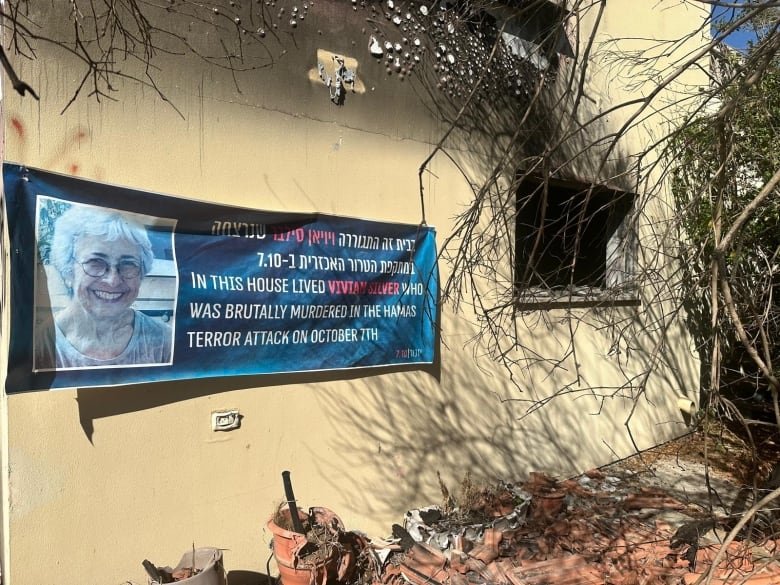
Unlike in many modern kibbutzim, life in Be’eri still revolves around the collective ideals that led to the community’s founding two years before the 1948 creation of the state of Israel.
Bar Sinai says it began with a purchase of desert land from local Bedouin people, and over the decades, Jewish families created a thriving community of more than 1,000 people, which even now relies on collective ownership.
The community-owned printing business is still the main economic driver, and communal services, such as a group dining hall where people gather daily, remain the focal point of kibbutz life.
The massacre’s aftermath
But Bar Sinai says in Be’eri, once known for its peace activism, you rarely hear much talk of peace anymore.
“We think there is hope at the end of the way that they will understand that we are not going away with no cost,” Bar Sinai said. “Maybe someday they will accept us. Until then, we will have to have occasional rounds of killing.”
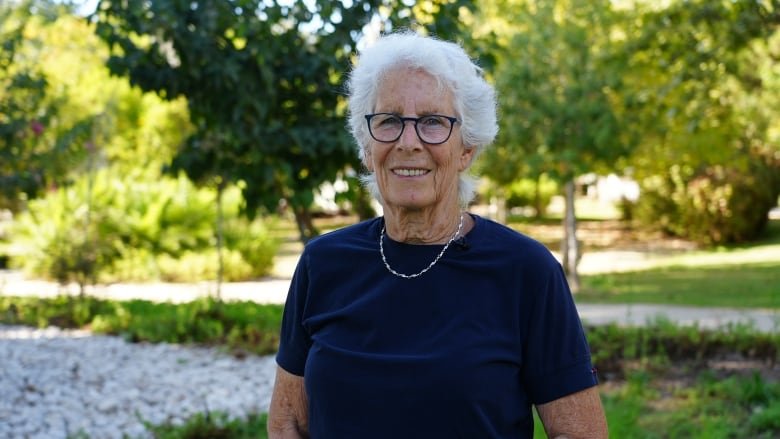
Bar Sinai spoke to CBC News outside of her daughter’s home, where a photo of her husband, Yoram, was draped on the balcony. The 75-year-old was killed by a group of Hamas gunmen on Oct. 7 after he went to protect their daughter and grandchildren.
As alerts went out that morning indicating armed men had infiltrated the community, Bar Sinai says, Yoram grabbed his handgun and headed to their daughter’s house a few blocks away.
There, he was confronted by seven militants who opened fire, killing him.
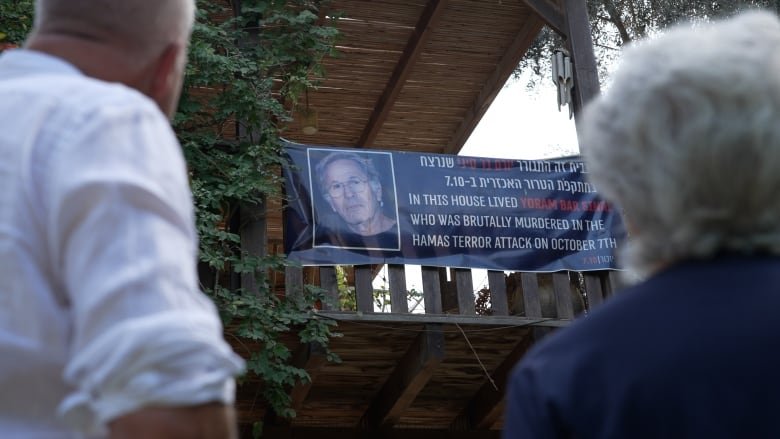
“We had no idea of the scope or the scale of what was happening,” she said. “We thought it would be one or two [gunmen], maybe three. And he could manage two or three.
“I hope he didn’t suffer long.”
She recounts the horrors that occurred here with a matter-of-factness that comes with repetition.
“This is Vivian’s house,” said Bar Sinai, stopping at another home on “death row,” blackened from a fire that no one inside could have survived.
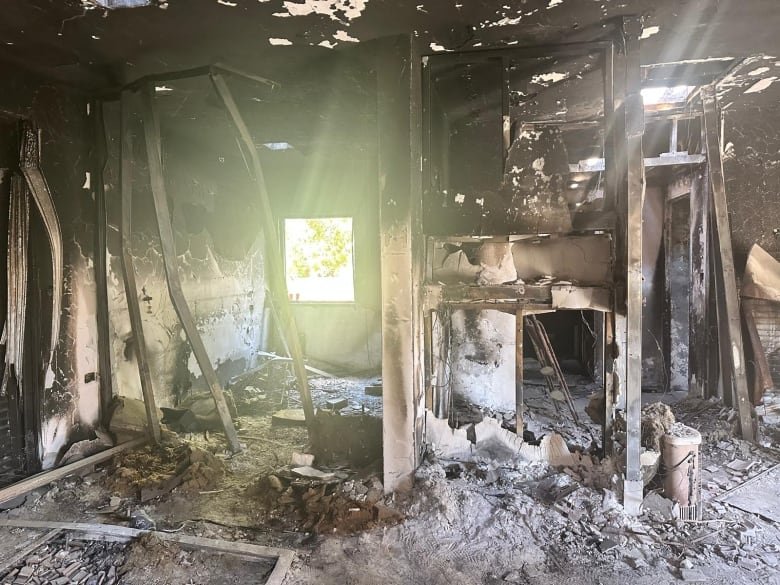
Vivian Silver, an Israeli-Canadian, was a tireless activist known far beyond Israel for her efforts to promote peaceful coexistence between Palestinians and Israelis.
Born in Winnipeg, she moved to Israel in 1974 and initially fought for gender equality on Israeli kibbutzim before her focus shifted to Arab-Israeli challenges.
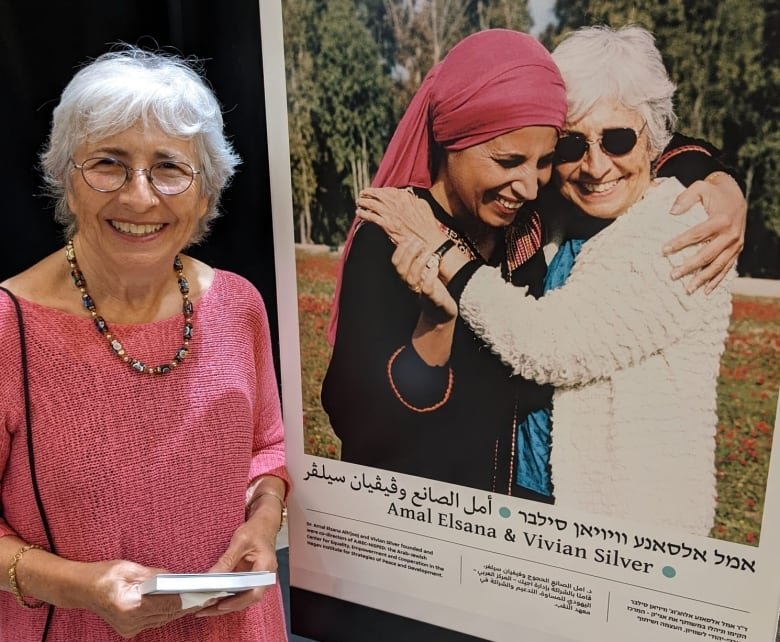
She became an advocate for workers from Gaza, fighting to improve their living and working conditions in Israel. She founded several major non-profit groups, including the Arab-Jewish Centre for Equality, Empowerment and Cooperation, and Women Wage Peace, a group with more than 44,000 members.
The morning Hamas attacked, the 74-year-old was in the safe room of her house being interviewed on the radio when gunmen invaded.
A transcript of that conversation indicates that even as the militants entered her property, she was still talking about the need for negotiation over confrontation.
The Hamas attackers burned her house down around her. It took weeks of sifting through ashes and subsequent forensic identification to identify her remains.
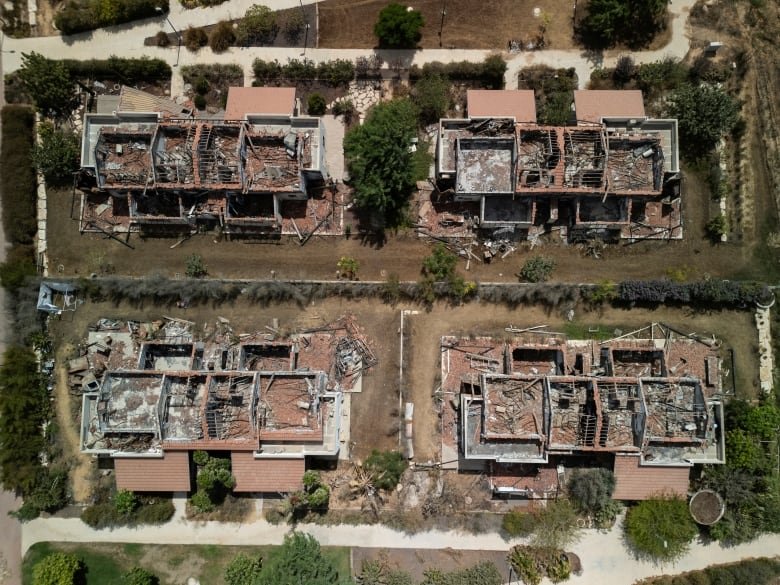
‘A wonderful mother’
“I miss her. My kids miss her. She wasn’t only a symbol. She was also just a wonderful mother,” said Silver’s son, Yonatan Zeigen, who spoke with CBC News at his home in Tel Aviv.
Zeigen, 35, believes his mother would be heartbroken by the mass civilian deaths Israel’s army has inflicted in Gaza, as well as with the multiple conflicts its military is now engaged in along its borders.
He says while he shared his mother’s political leanings when he was younger, in recent years he had not been especially active on the issue of ending Israel’s 57-year occupation of the West Bank and East Jerusalem. Instead, his focus was on his young family and his job as a social worker in Tel Aviv.
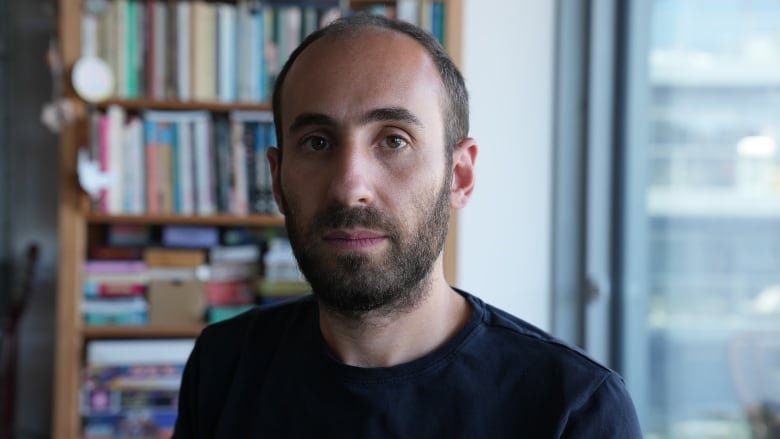
But he says the atrocities of Oct. 7 — along with his mother’s horrible death — altered the trajectory of his life.
“When you’re traumatized, it tends to pull you in the direction of resentment and vengeance-seeking,” he said.
“But it’s just not the way I see order in the world.”
In the last year, Zeigen has taken a leave of absence from his job and now devotes all of his energies to carrying on his mother’s activism, which he believes is needed now more than ever.
“After Oct. 7, I didn’t see the problem as Hamas gunmen murdering my mother. I saw the problem as the conflict and the occupation,” he said. “So that leads to a different attitude towards the solution for the problem.”
Yonatan Zeigen speaks to CBC’s Chris Brown about what losing his mother, Vivian Silver, has meant to his family and her community in Kibbutz Be’eri in southern Israel.
With only a few notable exceptions, most countries in the world have declared Israel’s occupation of Palestinian territories to be illegal. In the past year, Israel’s military and armed Jewish settlers have killed a total of 698 Palestinians in the West Bank, including 161 children.
Canada and other countries have placed sanctions on settlers and extremist Jewish groups responsible for attacks on Palestinian communities and for driving them out of their homes and off their farmland.
Over roughly 20 years in power, Israeli Prime Minister Benjamin Netanyahu has steadfastly refused to engage in discussions working toward the UN’s preferred solution for bringing stability to the region: the creation of a Palestinian state alongside Israel.
Militant groups — such as Hamas, Hezbollah and other smaller, less defined organizations — have justified violence against Israel as being legitimate “resistance,” given the Israeli occupation and the absence of progress on the question of statehood.
Kibbutz Be’eri suffered one of Hamas’s worst massacres on Oct. 7. One year later, some community members say Israel’s deadly military response in Gaza was the only option, while a smaller group — including the son of Canadian victim Vivian Silver — say there must be a pathway to peace.
‘A bigger monster’
Zeigen says his mother would be horrified by the path Israel has taken in the past year, pursuing military solutions to what he says are political problems.
“I can hear her now saying, ‘Vengeance is not a strategy,'” he said.
“We have seen it again and again — every time we kill the biggest monster, a bigger monster emerges.”
Still, just about every opinion poll taken in Israel over the past year suggests Zeigen’s position is shared by only a minority of Jewish Israelis.
“It’s true that my point of view is pretty marginalized in Israel,” he said, “and sometimes it’s even persecuted.”
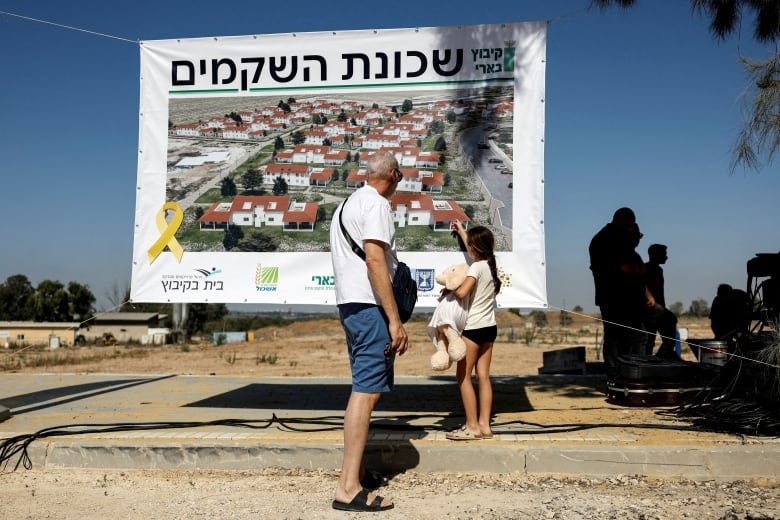
All of Israel’s main political parties, including those in opposition, have said they support using the country’s military to inflict crushing blows on the militant groups.
In Gaza, the territory’s Health Ministry estimates that close to 42,000 are dead, including more than 11,000 children under 18, with 96,000 injured. (The ministry’s figures don’t distinguish between civilians and combatants.) Vast stretches of the territory have been obliterated by Israel’s overwhelming bombing campaigns, and much of Gaza’s population of 2.3 million people now exist on the edge of starvation.
On Israel’s northern border, more than a million people in Lebanon have similarly been forced to flee for their lives, with roughly one-fifth of the country’s population now displaced. An unrelenting Israeli bombing campaign against Hezbollah has killed more than 1,000 people over the past two weeks, according to Lebanese officials, and an Israeli ground invasion is adding to the death toll.
Potentially overshadowing even those calamities is the threat of a full-on war between Israel and Iran, as the two long-time enemies trade long-distance airstrikes and missile barrages.
CBC’s Margaret Evans travelled to Tyre, Lebanon — a trip heavily controlled by Hezbollah — to see the damage from recent Israeli airstrikes and hear from the people who refuse to leave the region despite the danger.
When asked whether the Palestinian civilian deaths in the past year can be justified, Nili Bar Sinai bristles.
“I don’t trust the numbers [of dead] because they are not reliable numbers,” she said, because they are provided by health authorities who work for the Hamas government. (The UN and other agencies accept the Gaza Health Ministry’s casualty figures as generally reliable, and likely an underestimate.)
“We do our best to avoid civilian casualties,” Bar Sinai said. “We warn them. We tell them in phones, in leaflets, in every means that we have, to get away.”
And while she and Zeigen remain friends, she believes Hamas’s actions left Israel with no choice but to act as it did.
Bar Sinai’s mother was killed in an attack known as the Lod airport massacre five decades ago.
“That gives a different experience than coming from Canada,” she said. “I was not as naive as Vivian.
“You have to be practical about these matters.”
CBC’s Saša Petricic visited a sunrise memorial ceremony at the site of the Supernova music festival, which armed Hamas militants attacked last year, killing hundreds of people and taking dozens hostage. Survivors and loved ones of those killed gathered at the festival grounds to mark the one-year anniversary of the attack.





